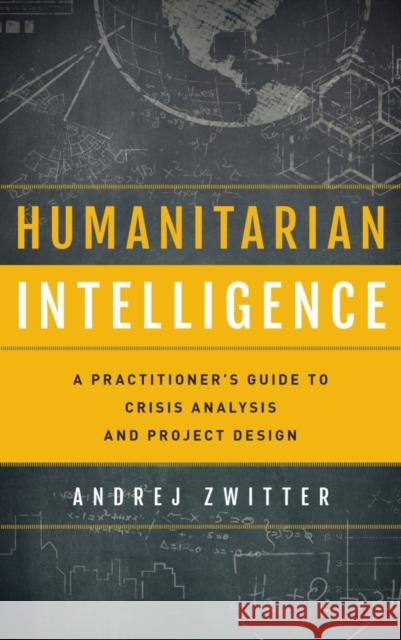Humanitarian Intelligence: A Practitioner's Guide to Crisis Analysis and Project Design » książka
Humanitarian Intelligence: A Practitioner's Guide to Crisis Analysis and Project Design
ISBN-13: 9781442249486 / Angielski / Twarda / 2016 / 248 str.
Humanitarian Intelligence: A Practitioner's Guide to Crisis Analysis and Project Design
ISBN-13: 9781442249486 / Angielski / Twarda / 2016 / 248 str.
(netto: 347,70 VAT: 5%)
Najniższa cena z 30 dni: 362,84
ok. 22 dni roboczych.
Darmowa dostawa!
Humanitarian aid workers are faced with many challenges, from possible terrorist attacks to dealing with difficult stakeholders and securing operational space free from violence. To do their work properly and safely, they need effective intelligence. Humanitarian intelligence refers to the use of investigative and analytical techniques in service of rapid and continuous assessment, project and program development, impact evaluation, and learning. It focuses just as much on how to use early warning indicators to assess risks, evaluate trends, and write early warning analyses as it does provide guidance on the operational design of humanitarian relief efforts. Further, operational security depends on the intelligence analysis. Unlike governments, NGOs resources are very limited. Humanitarian intelligence officers hardly have any literature detailing useful current standards and important tools for their analysis needs. Humanitarian Intelligence is the first to provide an overview and a practical guide to the tools and methods of data gathering and assessment, standards of measurement in humanitarian action, interpretation strategies, and operational planning tools. Short hypothetical cases and practical examples illustrate and explain the tools detailed in each chapter. Additional resources including case studies and teaching tools are available online at http: //humanitarianintelligence.net ."











